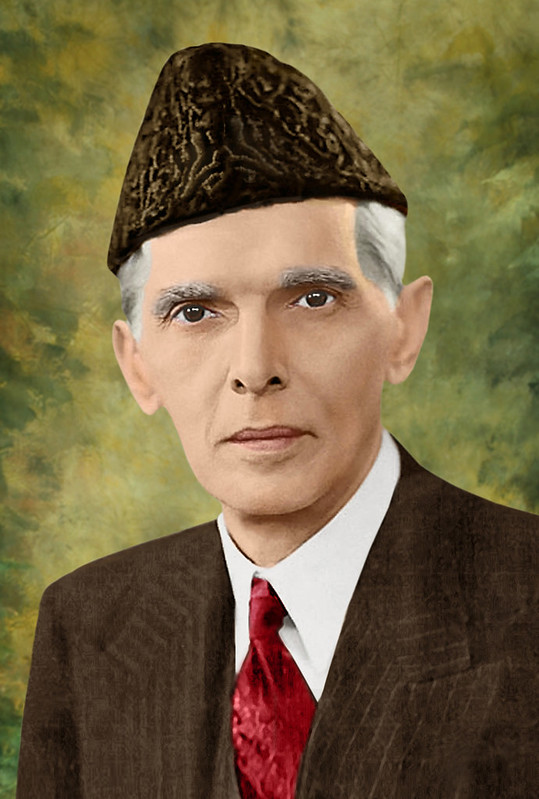Introduction
Every era in history produces leaders, but very few rise to the level of heroes who transform the destiny of entire nations. For the Muslims of the Indian subcontinent, Quaid-e-Azam Muhammad Ali Jinnah was such a hero. He was a man of law, vision, and unshakable resolve who carved a new nation out of oppression and uncertainty. His story is not just political—it is the story of courage, sacrifice, and the creation of Pakistan.

Early Life (1876 – 1893)
Muhammad Ali Jinnah was born on 25th December 1876 in Karachi, which was then part of British India. His father, Jinnah Poonja, was a successful merchant. From childhood, Jinnah showed qualities of discipline, confidence, and leadership.
At the age of 16, he traveled to England for higher studies. He studied law at Lincoln’s Inn, becoming one of the youngest barristers of his time. It is said that Jinnah chose Lincoln’s Inn because its entrance had the names of great lawgivers, including Prophet Muhammad (PBUH).
Professional Career – The Lawyer of Principles
Returning to India in the 1890s, Jinnah began his career as a lawyer in Bombay. He quickly became known for his sharp intellect, eloquent speeches, and integrity. Jinnah never compromised on truth—he would reject cases if they were based on dishonesty.
His legal background shaped him into a man who believed in justice, logic, and constitutional struggle rather than violence.
Entry into Politics
Jinnah’s political career began in 1906 when he attended the Calcutta session of the Indian National Congress. He strongly believed in Hindu-Muslim unity at first and was admired by both communities. In fact, he was once called the “Ambassador of Hindu-Muslim Unity.”
However, as time passed, it became clear that the Hindu leadership in Congress had no real intention of giving Muslims equal rights. This realization changed Jinnah’s path forever.
Joining the Muslim League (1913)
In 1913, Jinnah joined the All-India Muslim League, an organization dedicated to protecting Muslim interests. From then on, he devoted his life to the cause of Muslims.
His leadership was marked by clarity of thought: Muslims were not just a minority but a separate nation with their own culture, religion, and values. Without political independence, their future was at risk.
The Struggles and Challenges
Jinnah’s heroic journey was filled with trials:
- Health Problems: He suffered from tuberculosis but kept it secret to continue working.
- British Resistance: The British Raj tried to suppress Muslim voices.
- Congress Opposition: Hindu leaders continuously rejected the idea of Muslim independence.
- Internal Divisions: Even among Muslims, there were doubts and disagreements.
Despite all odds, Jinnah’s iron will kept the movement alive. His calm yet firm speeches became a source of hope for millions.
The Lahore Resolution – 1940
A turning point in history came on 23rd March 1940, when the Muslim League, under Jinnah’s leadership, passed the Lahore Resolution. This demanded a separate homeland for Muslims in the north-western and eastern regions of India.
For the first time, the dream of Pakistan became official. The world now saw Jinnah not only as a political leader but as the true voice of millions of Muslims.
The Road to Independence (1940 – 1947)
Between 1940 and 1947, Jinnah worked tirelessly to turn the dream into reality:
- He negotiated with the British and Congress leaders despite constant resistance.
- He traveled across India, uniting Muslims under one banner.
- He provided a vision where Muslims could live with freedom and dignity.
Even when his health was failing, Jinnah refused to stop. His dedication was so strong that his doctors advised him to rest, but he responded:
“I will not rest until my people have their homeland.”
Independence – 14th August 1947
Finally, on 14th August 1947, Pakistan was born. Jinnah’s vision, leadership, and unshakable determination gave the Muslims of India a homeland. He became the first Governor-General of Pakistan and worked to lay the foundation of a new state.
His famous motto—Unity, Faith, and Discipline—still serves as guiding principles for the nation.

Quaid-e-Azam as a True Hero
When we compare Jinnah to mythological and historical heroes, we find he shared the same qualities:
- Courage: He stood firm against the might of both Congress and the British Empire.
- Sacrifice: He gave up his health and personal comfort for his people.
- Leadership: He united millions under one cause.
- Legacy: He created a nation that lives on as his eternal achievement.
He was not a hero of the battlefield, but a hero of vision, intellect, and unshakable will.
Legacy and Inspiration
Today, Jinnah is remembered not only as the founder of Pakistan but as a global figure of leadership. His principles of justice, equality, and perseverance continue to inspire generations.
His life teaches us that true heroism is not in conquering lands but in conquering hearts, inspiring nations, and leaving behind a legacy of hope.
Conclusion
Quaid-e-Azam Muhammad Ali Jinnah was more than the Father of the Nation—he was a hero in the truest sense. His determination, sacrifice, and vision gave birth to Pakistan and inspired millions to believe in themselves.
At Hidden Truths, I believe Jinnah’s story is not just history—it is a timeless lesson in courage and leadership. His journey shows us that even in the face of overwhelming odds, one man’s resolve can create a nation.
